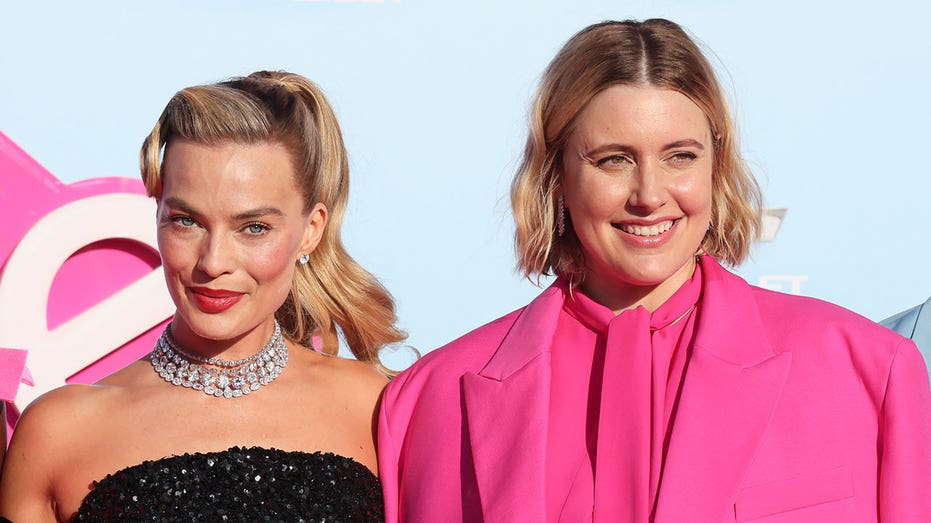Some conservatives are standing by the film “Barbie,” despite criticisms and reviews that blasted the blockbuster film for an allegedly liberal agenda.
Many conservative commentators had scathing takes on the Margot Robbie film based on the iconic Mattel doll, even as it reportedly passed $1 billion in global box office.
But some conservative women defend the film, with one commenter calling it a “delightfully fresh critique of modern feminism and masculinity” and even claiming it acknowledges “what makes a woman a woman.”
A popular Christian movie review site, Movieguide, published an early review of the film prior to its release warning its readers to not take their daughters to “Barbie” because it pushes “transgender character stories” by featuring a transgender actor as one of the Barbies.
Katrina Trinko, editor and chief of the Heritage Foundation’s Daily Signal, said this was a disappointing “woke moment” of the film, but that overall the movie “challenges the understanding of women promulgated by the sexual revolution and modern feminism.”
A notion, she says, “Conservatives should cheer… not despair.”
The general plot of the film follows Barbie, played by Robbie, in her journey of choosing whether to remain living in Barbie Land, where the Barbies are in charge and the Kens just exist as an accessory. Her journey takes her to the real world – complete with all the complexity, challenges and beauty of being a human, specifically a woman, according to some observers.
“Ultimately, the message of ‘Barbie’ is: Barbie’s life isn’t enough. Sure, the world of Barbie is sheeny and sparkles and there’s no aging or cellulite or crying babies or stress. But it’s also vapid, meaningless and loveless,” Trinko writes.
“In some ways, this 1960s doll is in line with the bad thinking of both the sexual revolution and modern feminism – the idea that women could have casual sex, and not be emotionally destroyed, just because they could prevent pregnancy, and the idea that to be a fully realized woman must include having a successful career outside the home,” she says.
“The never-pregnant, never-married, career-laden Barbie is exactly the kind of woman the 1960s thought we might all want to be. Except female desire – including, as it turns out, even in Barbie herself – is just more complicated than that,” Trinko says.
Nina Power, a senior editor and columnist at Compact, writes, “[Director Greta] Gerwig’s film is ultimately good-hearted, breaking the fourth wall to posit a feminist fourth wave.
“If the first wave sought political representation; the second, women’s reality and history; the third – well, whatever that was; the fourth posits a return to sexual difference, and to a heterosocial world in which men and women largely get along,” she writes.
Power points to a scene where she says the creators underscore a core tenet of the conservative view – that “women exist and sexual difference is real.”
“In the final scene, just when you think Barbie’s off to be a #GirlBoss, it turns out she is seeing a gynecologist instead. In the transition to the flesh, the smooth space gets complicated,” Power says.
“Gerwig’s nod to what makes a woman a woman is quietly subversive,” she says.
Ginger Gaetz, wife of firebrand Florida Republican Rep. Matt Gaetz, after attending a premiere of the film donning pink on the red carpet, later Tweeted that the movie “neglects to address any notion of faith or family” and that it contained “disappointingly low T from Ken.”
But Lois McLatchie, a commentator on free speech and faith issues in the U.K., disagreed, and argued that “Barbie might not have intended to champion traditional marriage, but it does.”
“Barbie Land depicts the damaging extreme of hardcore feminism – when ‘equality between the sexes’ tips over into ‘girls don’t need no man whatsoever,'” McLatchie claimed.
“#GirlPower too often has come at the expense of the role of men as fathers, husbands and heads of families, as well as their harnessing disciplined leadership skills unique to their gender,” McLatchie writes.
SPORTS RADIO HOST FIRED AFTER ‘BARBIE’ COMMENTS TO FEMALE TV REPORTER
By the same token, McLatchie says “Barbie” accurately harnesses modern “patriarchy” in the character arch of Ken, played by Ryan Gosling – describing it as “a hyper-reactionary movement responding to the damage of feminism to men in the 21st century.”
“‘Barbie’ sits astride these two increasingly polarised social dogmas and points out flaws in both. Societal solutions that pit the sexes against each other will ultimately end in disaster for both parties,” McLatchie concludes.
Gerwig, a three-time Academy Award nominee, last year said she was “terrified” that making “Barbie” might be a “career-ender” but is now the highest-grossing female director in Hollywood history.
























